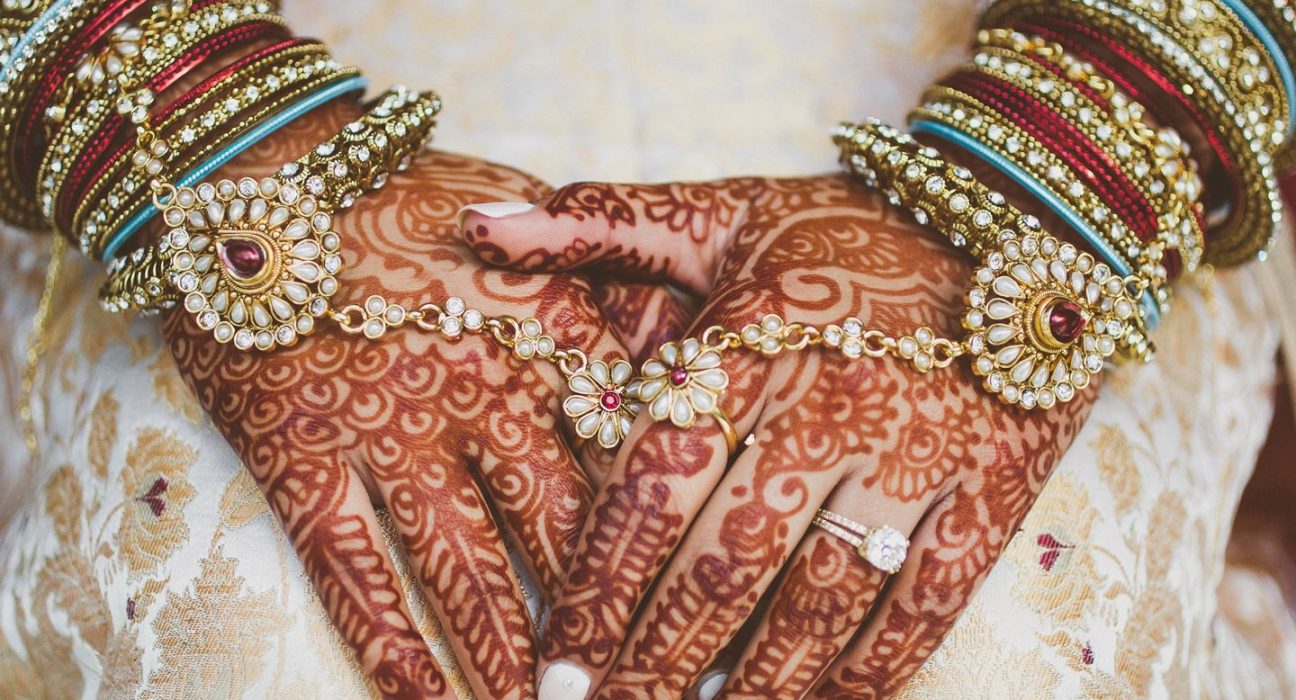The Significance of Mehndi (Henna) in Indian Celebrations

By using this site, you agree to the Privacy Policy and Terms of Use.

Mehndi, also known as henna, is more than just an art form in India—it is a significant cultural and spiritual tradition that plays a pivotal role in various celebrations, particularly weddings and festivals. The vibrant, intricate designs of mehndi have been a part of Indian heritage for centuries, carrying with them deep symbolism, blessings, and cultural pride.
In Indian weddings, mehndi is one of the most anticipated rituals, particularly for the bride. The application of mehndi is considered auspicious, with the belief that the darker the color of the henna on the bride’s hands, the stronger the bond between the couple. The mehndi ceremony, often held a day or two before the wedding, is a joyful gathering where friends and family apply intricate patterns on the bride’s hands and feet. This practice is thought to bring prosperity, good fortune, and happiness to the newlyweds.
The use of mehndi also carries spiritual significance. In Hindu traditions, mehndi is associated with fertility and positive energy. The intricate patterns symbolize growth, renewal, and the circle of life, with designs often including elements like flowers, leaves, and vines that represent life and vitality. Henna’s cooling properties are also believed to have a calming and soothing effect on the bride during the stressful wedding preparations, adding to its spiritual significance as a protective and nurturing element.
Apart from weddings, mehndi is an essential part of several Indian festivals, most notably Diwali, Eid, and Karva Chauth. During Diwali, the festival of lights, mehndi is applied as part of the pre-festivity rituals, symbolizing the arrival of prosperity and happiness. Similarly, during Eid, applying mehndi is a common practice among women, seen as a way of enhancing beauty and marking the festive spirit. The art of mehndi also becomes an expression of creativity and individuality, with people coming together to showcase their unique designs and styles.
The significance of mehndi extends beyond its aesthetic value. In many rural areas, mehndi is considered a form of protection and a symbol of the divine. In some traditions, it is believed that the goddess Lakshmi, the goddess of wealth and prosperity, bestows her blessings on those who wear mehndi, especially during auspicious occasions.
Mehndi is also a bonding ritual among women. Whether it’s during a wedding or a festival, the act of applying henna is often a communal activity where women gather, share stories, and celebrate together. It serves as a reminder of the importance of community, relationships, and shared traditions.
The designs themselves are highly symbolic. The motifs used in mehndi patterns are rich with meaning, from peacocks (representing beauty and grace) to paisleys (symbolizing fertility and eternity). Many designs are created with care to reflect the unique story or theme of the celebration, whether it be love, family, or a fresh start.
As India continues to embrace its cultural heritage, the art of mehndi remains an integral part of its celebrations. Its beauty, symbolism, and emotional resonance ensure that this tradition will continue to be an essential aspect of Indian festivities for generations to come.
Lessons:
Notifications